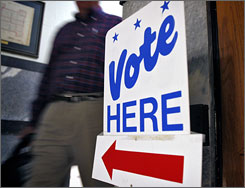I Refer to the Woman with Whom You Have a Child But Who Is Not Your Wife (Hereafter “Baby Mama”)
Perhaps Professor O’Hear can straighten me out on this.
The decision of a divided Court of Appeals setting aside the sentence of Landray Harris has gotten a fair amount of play in the blogs and on talk radio. Put briefly, the court vacated the sentence because the sentencing judge, apparently frustrated by the defendant’s failure to get a job, referred to the defendant’s “baby mama” (who supports him) and wondered how “you guys” (referring to one out of four defendants who appeared before the court) find women who are willing to support them in idleness. One of the area’s most prominent African-American defense attorneys has come to the defense of the sentencing judge, suggesting that his comments grew out of conversations that they had over the years about the puzzling ability of ne’er-do-wells to find women who enable them.
MULS alum Tom Foley is derisive of the critics, suggesting that they have failed to understand the proper standard for evaluating such matters. He points out that the majority asked whether the sentencing remarks could suggest to a reasonable observer or a “reasonable person in the position of the defendant that the court was improperly considering Harris’s race?” Thus, Tom argues, the question to be answered is not what, say, Jeff Wagner would make of the judge’s remarks but how they would be perceived by an African-American defendant.

